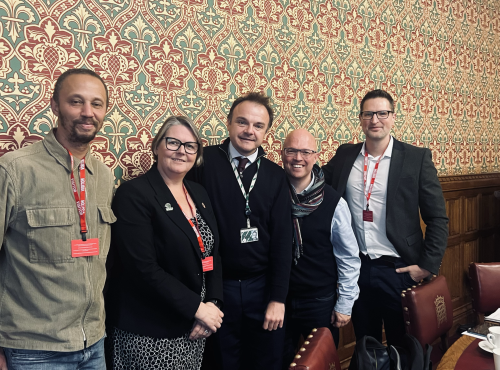Net zero, net zero, net zero!
It is perhaps no surprise that in the run-up to COP26, sustainability was one of the central themes at this year’s Conservative Party conference. The government is keen to highlight that it is serious about tackling climate change and showing people, businesses and the world that the UK is leading the way in reducing its greenhouse gas emissions. From a fireside chat between COP26 president Alok Sharma and keen conservationist Stanley Johnson, to Business Secretary Kwasi Kwarteng’s remarks on the net zero strategy, it is advertising its green credentials whenever it can.
Beyond the headline-grabbing speeches from the main stage, the fringe event programme was littered with net-zero themed discussions. MPs who have made sustainability their specialist focus were running around from room to room to speak about their priorities, often having to choose between three or four similarly-themed events scheduled for the same time. There is no doubt that policymakers, businesses and pressure groups have put net zero front and centre of their programmes, mirroring public opinion during a time of severe weather events, concerns about energy prices and a focus on the UK’s COP Presidency.
Beyond the politicians, there was a general consensus that climate change is one of the central issues this government, and the country, faces. From big corporates to individual party members, there are burning questions and concerns that need to be addressed, and it seems politicians are listening and responding. Be it on local waste incineration plants, home retrofits or flood resilience, there seems to be a growing momentum to take action.
Yet, fundamentally the government is still struggling to provide answers to questions that have been pressing for far too long. It is keen to point out the many merits of the strategies it has published since the Energy White Paper came out at the start of this year, be it the Transport Decarbonisation Plan, Industrial Decarbonisation Strategy or the Hydrogen strategy. What is missing, however, is further detail, increased commitment or revised regulation. More importantly, where a clear sense of direction is needed as soon as possible – in particular on energy markets and low-carbon heating – government continues to be vague and cannot say much, other than to expect the Net Zero and Heat and Buildings Strategies ‘later this month’ or ‘in due course’, something we have been hearing for well over a year now.
With only three weeks to go until COP26, there are three key priorities for the UK Government to show it is really serious about reaching net zero by 2050. They need to sort out buildings, better engage with people, and move towards a circular economy.
With buildings being one of the biggest contributors to the UK’s greenhouse gas emissions, it is essential the government publishes its roadmap and policy proposals on how to decarbonise the built environment, both in terms of construction and resilience, as well as heating. Technologies to achieve this are widely available and ready to be scaled up; the main thing that is missing is regulation from central government and coordinated action through local delivery plans to make it happen. Policy Connect will be publishing a report shortly with recommendations on how to make this happen.
People are rightly worried about both the effects of climate change and how meeting net zero will affect their lives. With mixed messages so far about how they can contribute by changing their behaviour or make energy efficiency upgrades to their homes, a comprehensive public engagement strategy is required that puts people at the centre of the transition. The benefits of decarbonising the economy go far beyond simply cutting our emissions, such as the creation of new jobs and industries, improved public health and a more pleasant living environment. The Climate Assembly UK was one example of how the public can be taken along on the journey and feed into government policy.
The biggest challenge is how we use our resources sustainably and make the shift towards a truly circular economy. All economic models and thinking to date have been based on extracting resources from the planet, ultimately depleting our natural wealth. Sustainable resources will be key to how we live our lives and urgent action is required to significantly reduce and change how we deal with waste and maximise the use of raw materials in the economy.
The Conservatives have shown they are keen to change the course of climate change. Now they have a big opportunity to prove it, by making the next 12 months the year of action as the UK holds the COP Presidency.



